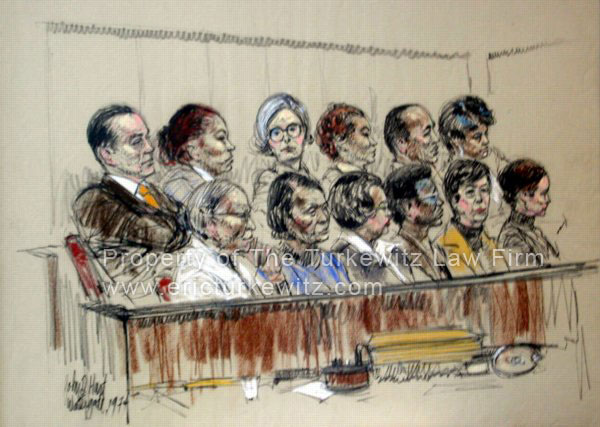I’ve been watching the political conventions off and on these past two weeks, and it occurs to me that there are a couple good tips in there for trial lawyers.
Two speeches stood out to me as good lessons.
The first was Bill Clinton. Why? Because he is a master story-teller. This isn’t about whether you agree or disagree with his politics, but the manner in which he engaged listeners with stories. He wasted no time in starting with a good old-fashioned boy-meets-girl story and kept coming back to it.
Once upon a time — September 2007, which is 63 years ago in dog years and 200 years ago in internet years — I quoted Mark Twain on this subject, in discussing the need for the trial lawyer to engage the jurors and tell a story. And the most important thing to do is make sure the listener doesn’t fall asleep. You need to engage the listeners.
The second was that of Mike Bloomberg, who I think gave the best speech so far. How can that be when he stands where Bill Clinton just stood as well as both Obamas?
Because he bluntly stated that he wasn’t speaking to the people in the hall and that he often disagreed with Hillary Clinton. That is enough to make any viewer sit up and take notice (and to get many boos from those in attendance).
The fact that he wasn’t a typical cheerleader, and has supported both Republican and Democratic candidates, gave him credibility to address Trump supporters. He wasn’t there to simply yell Rah, Rah, Hillary. He audience was, perhaps, the most important one of all: The undecideds. That meant there was no reason at all to pander to those seated in front of him.
There is a powerful point here for those that stand in the well of the courtroom. When you give up issues to the other side (that you know you will likely lose anyway) your other arguments gain credibility with judges and juries. If you are respected, your arguments are more likely to find a receptive ear.
But not everything works. Because, for many parts of many speeches, people were merely preaching to the choir. Rousing up the folks in the convention halls. While this may be good to motivate those in attendance to work hard over the next few months, they do little to reach the critical undecided vote.
Tim Kaine was also important, but for altogether different reasons. He started out waving his hands around over his head and wasted all of his initial time with shout outs to his friends.
And that is an awful idea. The moments that people are most likely to listen to you, and most likely to remember, are the opening couple minutes of your remarks. And the closing ones. This is the concept of primacy and recency. The most important moments that should never be wasted are the very start and the very end.
After a few minutes of listening, he lost me, and I went upstairs to write this post. I heard later that the middle of the speech was amusing with his parody of Donald Trump, but I never heard it live.
Given that so much time, money and effort is put forward for these conventions to communicate, it’s worth sitting up to take notice of not just what they say, but how they say it. And to remember that when trying to persuade a judge or jury.
